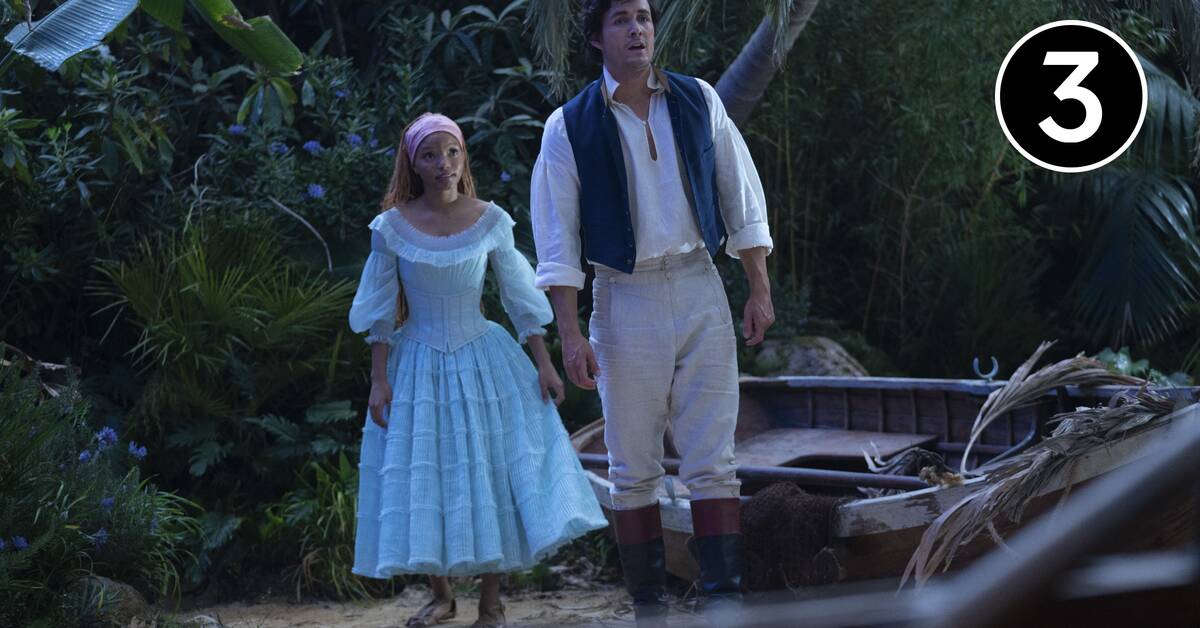Mermaid Princess Ariel dreams of the world on dry land. When a ship sinks, she saves the human prince Eric from drowning and they fall in love. Dad King Triton points with the entire trident and forbids Ariel from going near the surface again.
Ariel defies him and instead makes a deal with the sea witch Ursula (Melissa McCarthy who thrives in the role) to become human in exchange for her God-given voice. In order not to lose it forever, Ariel must kiss the prince within three days.
Her sidekicks – Sebastian the Crab and Scuttle the Seagull – must help her, and they shine in comedic scenes where they play Cupid to coax the shy turtle doves. Much to romance isn't exactly it, but Halle Bailey's voice and charisma carry throughout the film. All of her vocal numbers elicited great applause at the preview I attended (the same can't be said for the prince's vocal efforts).
The film's diversity in ethnicities has triggered a predictable backlash of racism several years before its premiere. A reaction both surreal and historyless. Disney, for example, made a version of "Cinderella" starring African-American actor and artist Brandy back in 1997, with an otherwise white, black and Asian cast.
However, it would have been easy to feel skepticism about "The Little Mermaid" after some of the megafilm company's recent feature film adaptations of previous classics, such as "Dumbo," "Aladdin" and "The Lion King," which resemble soulless AI copies of their cartoon counterparts.
In recent years, audiences have been drowning in wet CGI spectacle. "Aquaman," "Black Panther: Wakanda forever" and "Avatar: The way of water" have quenched their thirst for computer-animated underwater people, but director Rob Marshall still makes the well-worn "fish on dry land" saga mildly entertaining.
The film has a naïve charm that gives an inordinate amount of heart and humor to an otherwise cooked tale. Hans Christian Andersen's original story famously ends in unhappy love and tragedy – unthinkable in a Disney movie.

